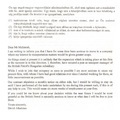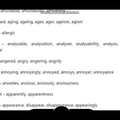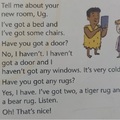- She is known for her poetry. (ismert a költészetéről)
- Do you know (everything) about the plan?
- We know (that) swimming is healthy.
- It is known that swimming is healthy. (köztudott)
- She didn’t know who to turn to. (Nem tudta kihez forduljon.)
- Darwin was labelled as a heretic by many.
- Some people tend to label others (as) gay.
- We lacked the money necessary for the renovation.
- A lot of children are lacking in imagination. (nincs képzelőerejük)
- The captain is (the) last to leave the ship.
- It is very impolite to be late for a wedding ceremony. (elkésni)
- They are late with the rent. (késnek)
- We were late in filing our tax return. (elkéstünk)
- It is too late to phone them now.
- We couldn’t stop laughing (at her).
- And when her husband cracked another joke, she could laugh with the rest.
- You have to laugh about things like this otherwise you’d go mad.
- The team was leading (by one goal) when the accident happened.
- They lead the way in cancer research. (elöljárnak)
- He was leading the crowd.
- His remark led me to think. (gondolkodásra késztettek)
- The new tax system led the country to a crisis. (válságba juttatta)
- The revolution led to thousands of people emigrating. (a forradalom azt eredményezte, hogy)
- He is learning fast.
- Did you learn the words for today?
- It is best to learn from others’ mistakes.
- We learnt a lot about literature in his classes.
- We learnt to play the flute at school.
- They are learning how to dance.
- Reporters soon learned of/about our arrival. (értesültek)
- We learnt (that) he wasn’t coming. (megtudtuk)
- Leave your phone number with the secretary!
- Can you leave this book here for me, please?
- He left his estate to her. (ráhagyta)
- He left her his estate.
- She left Budapest for London. (elhagyta)
- The film left me cold. (hidegen hagyott)
- The war left her an orphan. (árva lett)
- Leave the pasta to cook for 15 minutes.
- I left him working in the garden.
- Can you lend a pen (to me)?
- Can you lend (me) a pen?
- Banks here aren’t ready to lend to anyone. (kölcsönöz)
- Animals lend themselves to humorous interpretations. (alkalmasak)
- You didn’t let her speak!
- She lets rooms to lodgers. (kiad, bérbe ad)
- The company is liable for the damage.
- Children are liable to accidents in the house. (hajlamosak)
- The boss is liable to fire you if you keep on arriving late. (valószínű, hogy ki fog rúgni)
- He was lying on the ground.
- There lay a body in the street.
- The dress lay untouched for years.
- Why would he lie (about his job)? (hazudik)
- How could she lie (to me) (about this)? (hazudik)
- We like chess.
- I like my day well-organized.
- What we like about Joe is his optimism.
- I like getting/to get up early.
- I’d like you to listen to this.
- We like him/his joking.
- I like it when you imitate him.
- We are likely to arrive later than we expected. (valószínű, hogy)
- It is likely that we’ll arrive later than we expected.
- These computers are linked (to each other).
- Western psychology tried to link acupuncture with the human nervous system. (összefüggést keresni)
- We listened to jazz music yesterday.
- The mother listened to her child (playing the piano).
- I listened for noise but everything was really quiet. (hallgatóztam, figyeltem)
- Many people choose to live alone these days.
- They live with nine dogs.
- She lives for her children.
- They lived like beggars.
- How can he live on this salary? (megélni)
- She will live to old age, I hope. (hosszú élete lesz)
- Perhaps this little child will live to see the bicentennial. (megéli)
- We are longing for a challenge.
- She longed (for him) to explore the world.
- She looked at the photos and sighed.
- She didn’t look fit to come out of hospital. (látszott)
- You look like your mother. (úgy nézel ki, mint)
- You look as if/as though you could do with a coffee. (úgy nézel ki, mint aki)
- It looked as if/as though nothing had happened. (úgy tűnt, hogy)
- It looked important to call a meeting. (fontosnak tűnt)
- I lost my umbrella.
- His errors lost him the match. (A hibái miatt veszített.)
- We lost the match (to the Dutch).
- Our team lost to them by three points. (három ponttal veszítettünk)
- They fought hard but in the end they lost against us.
- We lost (a big sum) on that contract.
- We lost (a big sum) by accepting their offer.
- Little children lose themselves in tales. (belefeledkeznek)
- We love you.
- What we love about Joe is his optimism. (azért szeretjük Joe-t, mert)
- I’d love (for) you to see our new flat.
- I love watching TV/to watch TV.
- They loved his/him dancing.
- I love it when you smile like that.
- It was lovely of you (to arrange this party). (kedves tőled)
- It is lovely that you could all come.
- It is lovely to have another woman in the house.
- It was lovely meeting you.
- We were lucky (with the weather).
- You are lucky to be alive. (Szerencse, hogy élsz.)
- You are lucky (in) having such a wonderful friend.
- We were lucky that the rain stopped.
- It’s lucky (for us) that we got here early.
- She is really mad at/with me for coming late.
- She got mad about the washing machine. (ideges lett a mosógép miatt)
- She has always been mad about tennis. (megőrül érte)
- She was mad with love. (őrülten szerelmes)
- You are mad to risk your life for nothing. (őrült vagy, ha kockáztatod az életed)
- I made a cup of tea.
- I made her coffee.
- We made him president. (elnököt csináltunk belőle)
- I made painting the house my project for the summer. (a ház kifestését tűztem ki célul)
- I made coffee for her.
- The table is made of wood. (fából készült)
- Glass is made from sand. (homokból van)
- They made money out of the success. (sok pénzt kerestek)
- They made the book into a film. (megfilmesítették)
- This dish was made with a special spice.
- Don’t make an actress of her.
- We try to make him happy. (boldoggá akarjuk tenni)
- We made him give up his plan. (rávettük, hogy)
- He was made to give up his plan. (rávették, hogy)
- They made (it) clear that they wanted to leave. (világossá tették)
- I made it my duty to clean up. (kötelességemnek tartottam)
- Don’t worry, you’ll manage. (sikerülni fog)
- He manages the shop.
- I managed to climb the tree. (sikerült megmászni a fát)
- I just can’t manage on £ 500 per week. (nem tudok kijönni)
- We cannot manage with the children/without a computer. (nem bír a gyerekekkel/nem tud meglenni számítógép nélkül)
- She married last year.
- She married her ex-husband again. (feleségül ment)
- He married his daughter to a rich businessman. (Hozzáadta a lányát egy üzletemberhez.)
- Her mother married young.
- She got married (to her cousin) last year. (feleségül ment)
- She was late, but it didn’t matter.
- Her dog matters more to her than her cat. (fontosabb neki)
- Doesn’t it matter (to you) that we are lost? (mit számít az neked)
- It doesn’t matter (to me) how old you are.
- Money means nothing (to me).
- I meant my remark as a compliment. (bóknak szántam a megjegyzésem)
- The dress was meant for his fiancée. (a menyasszonyának szánta)
- Jane and Jack are not meant for each other. (nem egymásnak lettek teremtve)
- Judy’s father meant her to be a chess player. (sakkozónak szánta)
- Travelling by air means getting up early.
- Accepting the job will mean you working hard.
- I didn’t mean to hurt you. (nem akartalak megbántani)
- The children were meant to stay with you. (úgy volt, hogy)
- It doesn’t mean that we can’t go on holiday.
- I always mean what I say. (komolyan gondolom)
- They’ve never met before.
- I met her at the zoo.
- His speech was met with anger. (haraggal fogadták a beszédét)
- He mentioned my name (to her).
- His name has been mentioned as the future Pope. (szóba jött a neve)
- She mentioned (to me) that he was leaving.
- Did he mention (to you) why he was leaving?
- He got up late, but he didn’t mind. (de nem bánta)
- I don’t mind the noise at all. (nem zavar a zaj)
- Do you mind working in the garden? (bánod, ha a kertben kell dolgoznod)
- I hope you don’t mind me/my opening the window. (remélem, nem zavarja)
- We didn’t mind (it) that we had to wait. (nem bántuk, hogy)
- Do you mind if I smoke?
- My parents never minded how late I arrived.
- He tried to score a goal, but he missed (it). (mellé lőtt)
- I miss running in the morning.
- He mistook my joke as an insult. (sértésnek vette a viccem)
- I think you are mistaking me for someone. (valakivel összekeversz)
- You are completely mistaken about them. (nagyon tévedsz velük kapcsolatban)
- They were mistaken as to her feelings. (tévedésben éltek)
- He didn't move.
- He moved his head.
- We moved from the city to the country. (elköltöztünk)
- He’s being moved (to the Paris office). (áthelyezik)
- He moved into his new flat. (beköltözött)
- The performance moved me (to tears). (meghatott)
- His speech moved me to believe in his theory. (arra késztetett, hogy)
- We named the cat Tiger.
- She is named after/for her grandmother. (a nagymamája után nevezték el)
- The criminal has not been named yet. (még nem nevezték meg)
- Gore has been named (as) the nominee for the Democrats. (jelölték)
- He was named (to the board) in Mr. Jones’s place. (kinevezték)
- It is natural (for everybody) to be sad sometimes.
- It is natural (that) we are hungry after walking so much.
- It is natural (that) children should help their parents.
- It is necessary (for new-born babies) to eat every three hours.
- It is necessary that she is there.
- It is necessary that the king (should) be hanged.
- I need money.
- I need my steak well-done. (jól átsütve kérem)
- The room needs cleaning/to be cleaned. (ráférne a szobára egy kis takarítás)
- She needs to be more careful. (óvatosabbnak kellene lennie)
- I need you to do me a favour. (meg kell tenned egy szívességet nekem)
- I need these letters typed by four. (Legépelve kérném ezeket a leveleket.)
- He neglected his studies.
- She neglected to mention that she was married. (elfelejtette megemlíteni)
- We negotiated (for higher pay) last week.
- We negotiated the release of the hostages. (megegyeztünk)
- The president negotiated with the opposition leaders (about taxes).
- The investors negotiated to buy the plot.
- I was nervous about my new job.
- Some people feel nervous going through customs. (idegesek a vámvizsgálatnál)
- This kind of music is completely new to me.
- I am new to the system.
- He was really nice to her. (kedves)
- She is nice to know.
- It was nice meeting you. (Örülök, hogy találkoztunk.)
- It was nice of you to accompany me. (kedves volt tőled)
- It’s nice to meet you again.
- It is nice that you can join us.
- The company was nice about my complaint. (jól reagált a panaszra)
- He was nominated (as) best actor.
- She has been nominated for the Academy Award.
- He was nominated (to the board). (kinevezték)
- 2 May was nominated as the day of the final exams. (május 2-át jelölték ki)
- He was nominated to carry the Olympic torch. (kijelölték)
- Note the beautiful Baroque furniture in the room.
- She noted (that) the weather was lovely. (megjegyezte)
- Note how monkeys eat bananas.
- He was being laughed at, but he didn’t notice.
- He noticed a small green object in the garden. (figyelmes lett)
- We didn’t notice him come in. (Nem vettük észre, amikor bejött.)
- I noticed him dancing with his teddy bear. (Észrevettem, hogy a játékmackójával táncol.)
- I noticed (that) she wasn’t wearing a bra.
- I didn’t notice how sad she was.
- The president objected to the new financial policy.
- I objected to (him/his) leaving the camp. (elleneztem, hogy elhagyja)
- He objected that he was dismissed without any explanation. (tiltakozott, hogy)
- The law obliges children to go to school until they are sixteen.
- I’m very sorry I can't oblige you with cigarettes, sir. (Nagyon sajnálom, de nem áll módomban cigarettával megkínálni.)
- He obliged me by lending his flat to me. (lekötelezett)
- We are much obliged to you (for helping us). (nagyon hálásak vagyunk)
- Some children are obliged to work to help their families. (kötelesek)
- She was oblivious to/of the danger around her.
- It’s obvious (to everyone) (that) we are all responsible.
- It was obvious why they came.
- The crash occurred while the plane was landing.
- There occurred an accident on the highway.
- The idea occurred to him while running. (akkor ötlött fel benne a gondolat)
- It occurred to John to invite Jane for a drink. (eszébe jutott)
- It didn't occur to me that this affair could ever end. (eszembe sem jutott)
- It must be odd to live alone.
- It’s odd that she hasn’t written.
- It’s odd (that) she should say such things.
- The company offers a bonus (to its employees) (for doing overtime). (a cég túlórát fizet)
- We offered him the house while we were abroad.
- My brother offered to do the washing up.
- They omitted my name (from the list). (törölték a nevem a listáról)
- The article omitted to point out that the story had come from Nigerian official sources.
- The window opened in the middle of the night.
- We opened the door (wide).
- He opened the ceremony by thanking the sponsors. (azzal nyitotta meg az ünnepélyt)
- The book opens with (the writer giving) a boring description. (kezdődik)
- This machine won’t operate without an expert.
- The company operates a late-night service. (működtet)
- She was operated on for appendicitis. (megműtötték)
- The surgeon operated (on her/on her stomach) last night. (megoperálta)
- We opted for/against a career in economics.
- The other parties opted to wait and see.
- Have you ordered (yourself anything) yet?
- I ordered (a steak) (for him).
- The ministry ordered an inquiry. (kivizsgálást rendelt el)
- The doctor ordered her to stay at home. (az orvos azt rendelte, hogy)
- The director ordered that everyone (should) arrive on time.
- It’s hard to organize a conference.
- She is unable to organize herself. (képtelen összeszedett lenni)
- They organized themselves (into an association). (tömörültek)
- We organized a taxi to pick them up at the airport.
- I owe (him) $50 (for the tickets).
- I owe $50 (to him) (for the tickets).
- You owe me a favour. (tartozol egy szívességgel)
- She owes her success to me. (nekem köszönheti a sikerét)
- He was deeply pained by her behaviour. (mélyen megbántódott)
- It pained her to think about her childhood. (fájt még csak rágondolni is)
- It pained her that he had left her.
- She participated in the competition.
- Cars couldn’t pass because of the roadworks.
- She finally managed to pass (the exam). (sikerült átPASSzírozni magát a vizsgán)
- She passed me in the street yesterday.
- Could you pass (me) the pepper, please? (ideadnád)
- Could you pass the pepper (to me), please?
- The smallest hint of laziness cannot pass unnoticed. (nem múlhat el észrevétlenül)
- We passed the evening playing darts. (azzal töltöttük az estét)
- He passed (on the question). (passzolt)
- She could easily pass for/as a princess. (elmenne hercegnőnek)
- The judge finally passed sentence on them. (kimondta az ítéletet)
- He is passionate about cars. (lelkesedik a kocsik iránt)
- He is really patient with children.
- She was unwilling to pay me.
- I paid him for the house.
- He paid the bill/ransom/fee/fine (to her).
- He paid her the bill/ransom/fee/fine.
- I paid a lot of money to have my car fixed. (sokba került)
- Her parents paid for her to study abroad. (fizették a tanulmányait)
- It would pay (you) to use an accountant. (kifizetődő lenne számodra)
- This job will pay (you) well. (jól fizető munka)
- This is a monkey peculiar to Sri Lanka. (különleges Sri Lanka-i majom)
- We performed (the play) in the open air.
- She performed really well at the exam. (jól teljesített)
- We don’t permit mobile phones during the lesson.
- She permitted herself a beer. (megengedett magának)
- The guards didn’t permit visitors to enter the castle.
- They don’t permit smoking in the area. (nem szabad)
- The rule permits of no other interpretation. (nem enged meg)
- He persevered with his French lessons. (kitartóan járt)
- He persevered in attending French lessons.
- He persisted in/with his inquiry.
- He persisted in continuing his inquiry.
- We persuaded her into/out of calling him.
- He persuaded me of his innocence. (meggyőzött)
- She persuaded me to enter the contest.
- He persuaded me that the film was worth seeing. (meggyőzött)
- He planned the opera house.
- We planned everything for the trip. (mindent elterveztünk)
- She is planning to have a child soon.
- They planned that they would meet the next day.
- We didn’t plan what we were going to say.
- We haven’t planned on going out tonight.
- The organizers only planned for two hundred people. (kétszáz emberre tervezték)
- The baby was playing (with the new toy) all day.
- We played ball games (with the children).
- The boys played (at/at being) soldiers. (katonásdit játszottak)
- He played (tennis) (against Bill) yesterday.
- Have you played him at badminton yet? (játszottál már ellene)
- She played the piano (to/for her father). (zongorázott)
- She played for her father.
- He played us a song. (eljátszott nekünk egy dalt)
- He played a song (on his guitar).
- She pleaded with him for her freedom.
- He pleaded to go.
- He pleaded that he was innocent. (ártatlannak vallotta magát)
- His lawyer told him to plead mental illness. (hivatkozzon elmezavarra)
- He pleaded his mother’s illness for his absence. (édesanyja betegségére hivatkozva)
- She pleaded for the abolition of the death penalty. (felemelte szavát)
- We did all we could to be pleasant to the old lady. (hogy az idős néni kedvére tegyünk)
- It was pleasant to have dinner with you.
- It was pleasant walking in the October afternoon.
- It was pleasant (that) she found the song painless.
- He was pleased with himself. (elégedett volt önmagával)
- She was pleased about her results. (elégedett volt az eredményeivel)
- I was pleased to hear from you. (örültem, hogy hallok felőled)
- We are pleased that you could come. (örülünk, hogy el tudtál jönni)
- It is rude to point (at people). (nem illik mutogatni)
- He pointed the gun at his wife’s lover. (ráfogta a fegyvert)
- All her reactions point to her guilt. (a bűnösségére utalnak)
- The sign points west.
- It is pointless waiting/to wait anymore.
- He was polite to the old lady.
- We were (im)polite to leave them alone.
- It was polite (of her) not to ask anything.
- The Great Wall of China is popular with tourists.
- She has always been positive about the future. (pozitívan állt hozzá)
- We were positive that he would come.
- Is it possible for us to stay for the night? (Maradhatunk éjszakára?)
- It’s possible that I’ll be a bit late.
- They postponed the outing (until Monday).
- They postponed building the new underground line.
- It’s pouring, take an umbrella. (szakad az eső)
- He poured me some coffee.
- He poured some coffee for me.
- She is practising (for her concert).
- She had been practising her method (on him) for years.
- He practised typing all day.
- She practised as a doctor in the USA. (az USA-ban praktizált)
- She was praying to God for her sons.
- He prayed to be free.
- She prayed for her son to be free.
- She prayed (to God) (that) her husband would come back.
- He predicted a bright future.
- She predicted (that) she would marry in a year.
- No one could predict what would happen next.
- The rain is predicted to stop in a few days. (Az előrejelzések szerint pár napon belül eláll az eső.)
- It is predicted that the rain will stop in a few days.
- I prefer tea to coffee.
- I prefer my steak well-done. (jól átsütve szeretem)
- She prefers hiking to running.
- He prefers to be alone rather than be/being with other people.
- I prefer him to stay at home. (Azt szeretném, hogy itthon maradjon.)
- I’d prefer that you stayed out of this argument. (helyesebben tennéd)
- We’d prefer it if you came in person.
- They are prejudiced against Eastern medicine.
- He was preoccupied with the problems of the journey.
- She prepared a salad from fresh vegetables.
- They prepare students (for the entrance exam).
- She prepared a salad for the party.
- They were preparing (themselves) (for the battle) for months.
- We were preparing to go abroad. (Külföldre készülődünk.)
- They prepared themselves to take a risk.
- We were prepared for the worst. (fel vagyunk készülve)
- I wasn’t prepared to help her. (nem voltam hajlandó)
- Her friends presented her with a hat.
- The queen presented the painting to the National Gallery.
- His plan was presented for consideration. (előterjesztették)
- He presented his proposal to the committee. (előterjesztette)
- The writer presented John as a negative hero. (negatív hősként ábrázolta)
- He presented his fiancée to his parents. (bemutatta a menyasszonyát)
- She pressed (her head) against the door.
- He pressed a pillow to his face.
- He pressed his hands together.
- They are pressing me for the money. (Pénzt akarnak belőlem kiszedni.)
- My parents are pressing me (into the family business). (nyomást gyakorolnak rám)
- The public has pressed (for) the government to act immediately. (azt követelte a kormánytól)
- They pressed IBM on these issues. (nyomást gyakoroltak)
- The lawyer presumed her innocence.
- The lawyer presumed her (to be) innocent. (ártatlannak tartja az ügyvédje)
- She presumed him to be the manager.
- I presumed (that) he was aware of the conditions.
- It is presumed that he died in the war. (állítólag)
- I wouldn’t presume to tell you how to behave towards your clients.
- He pretended to love her.
- He pretended (to his mother) (that) everything was fine.
- Nobody could have prevented that accident.
- His physical handicap couldn’t prevent him from (attending) all the games.
- She prevented putting too much money into the business.
- Her absence didn’t prevent him/his thinking about her.
- We are proceeding with the works slowly.
- Smoking is prohibited in the hospital.
- His doctor prohibited him from driving. (megtiltotta neki)
- He has promised some books (to us).
- She promised me her help.
- He promised to help me.
- She promised (me) (that) she would be punctual.
- The match yesterday promised to be exciting. (izgalmasnak ígérkezett)
- He was promoted (from grade seven) (to grade eight). (nyolcadikos lett)
- The castle is promoted as a tourist attraction. (turista látványosságként reklámozzák)
- Children are prone to illnesses.
- Tired drivers are prone to fall asleep.
- I propose her for/as President.
- He proposed a change to the system.
- I propose (to make) an early start.
- I propose (making) an early start.
- I propose (that) he waits for a while.
- I proposed that he (should) wait for a while.
- It is proposed that all the equipment is installed on the premises.
- It was proposed that he (should) be elected for 10 years.
- A new vaccine will protect against pneumonia.
- Drinking a lot of tea protected him against the flu.
- This sun shade will protect you from the sun.
- Students were protesting (to the principal) about the unfairness of the exam.
- He protests (that) he knows nothing about the murder. (azt állítja)
- He was proud of his victories.
- He was proud to announce the birth of his child. (büszkén jelentette be)
- We were proud that he won.
- He tried to prove his statement (to the jury).
- The detective proved the two men guilty.
- He is always proving himself (to others).
- He proved himself (to be) a hardworking man.
- He tried to prove (that) he was innocent.
- It was proved that he was innocent. (bebizonyosodott)
- She couldn’t prove where she’d been.
- Their new play proved (to be) successful/a great success. (nagy sikernek bizonyult)
- The question proved impossible to answer. (lehetetlennek bizonyult válaszolni a kérdésre)
- Old people prove to need constant care.
- He provided accommodation (for everybody).
- She has to provide for her children. (gondoskodnia kell)
- He provided everybody with accommodation.
- The constitution provides for a multiparty system. (rendelkezik)
- This bill provides that money should be allocated for flood control. (a törvényjavaslat elrendeli)
- The teacher punished the child (for telling a lie).
- The witch was punished (with the death penalty).
- She pushed me into (taking up) karate. (rábeszélt)
- She pushed me to take up karate. (rábeszélt)
- She is qualified for the job.
- She is qualified as a therapist.
- She is qualified to do the job.
- They quarrelled (with each other) (about the household chores).
- She was questioned about the robbery.
- I have never questioned her honesty. (sohasem vontam kétségbe)
- He questioned whether I was right. (megkérdőjelezte, hogy)
- He’s quick at (solving) problems.
- She is really quick to learn.
- Help us to raise funds! (anyagi alapot teremteni)
- They raised my salary to 35,000 Forints. Hooray!
- He raised her from the dead. (feltámasztotta)
- Walter slowly raised himself upright in the chair. (felemelkedett)
- How did she react (to the news)?
- He reacted by shouting.
- He reacted against the Spartan environment of Potsdam. (ellenállt)
- She was reading all afternoon.
- She read tales (to her dogs).
- She read (her dogs) tales.
- I read about the plane crash in Cairo.
- She read that her mother was a pilot.
- He thought his smile was read as an insult. (sértésnek vették)
- His speeches read like haikus. (úgy hatnak, mintha)
- Their first book reads well. (jól olvasható)
- Don’t read too much into her reactions. (ne magyarázz bele)
- Are you ready for the show?
- She is always ready with good ideas. (mindig van valami jó ötlete)
- He is always ready to fight.
- Did you realize your mistake?
- He realized that he had been cheated.
- It was realised that all their military secrets had been lost. (kiderült)
- Nobody realized how important the decision was.
- He couldn’t recall my phone number.
- He couldn’t recall talking to her.
- I couldn’t recall him answering the question.
- He recalled that she always had coffee at 10.






